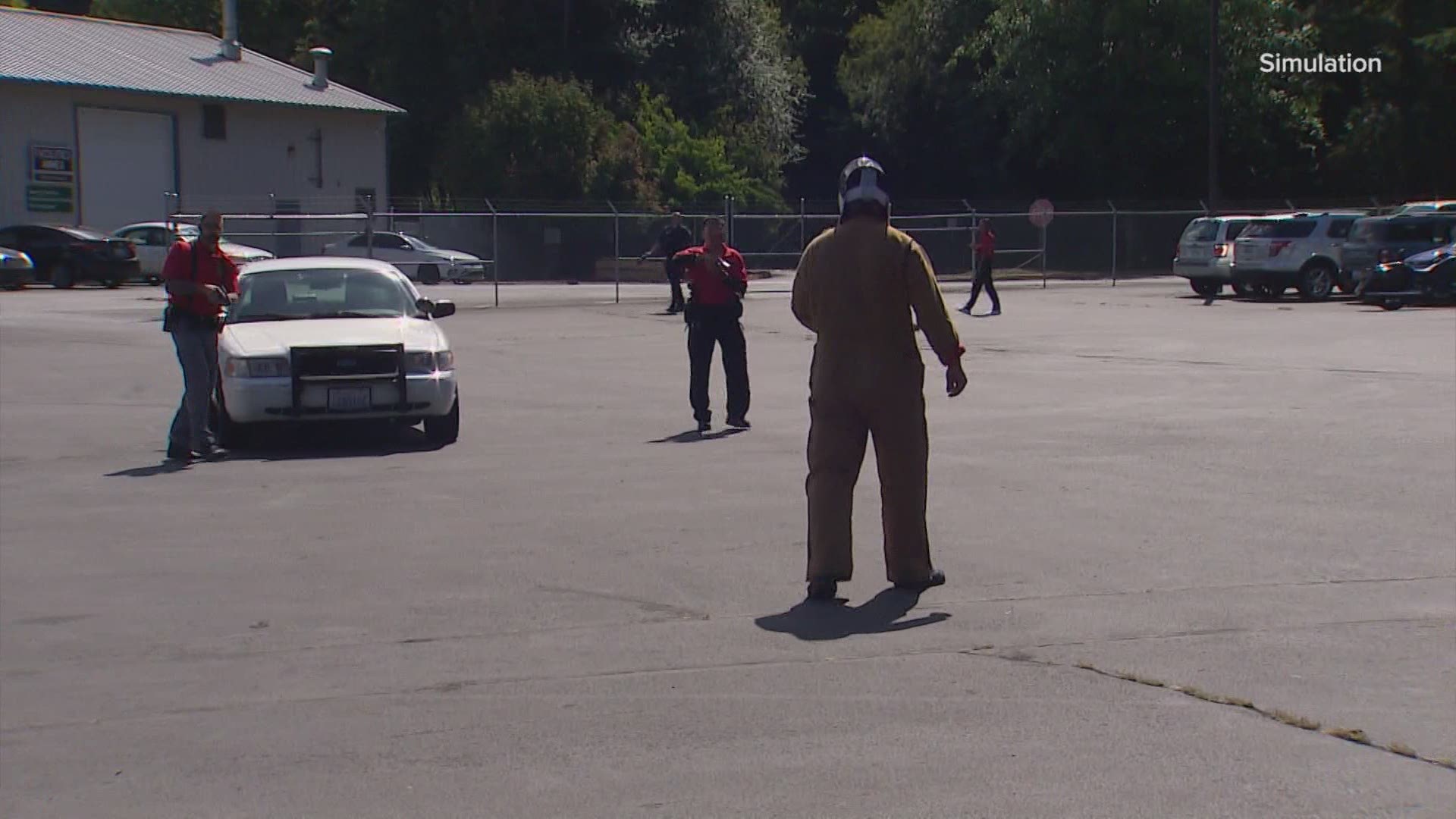BURIEN, Wash. — Buried in the outskirts of Burien, you'll find "Mock City." It is where hundreds of new recruits come every year to learn how to become a police officer at the Criminal Justice Training Center.
It is also where tactical instructors are adapting with the ever changing use-of-force laws in Washington, which will enter a new phase on Sunday.
"Violating pace and compressing distance has an inverse effect on threat perception," said instructor Scott Wells about how tactics have changed in recent years, especially since I-940 was approved in 2019.
It's also where they're still grappling with the impact of House Bill 1310, approved by the legislature and signed into law earlier this year, which narrowly defines use-of-force.
As it stands right now, Wells and his team of instructors push trainees to keep their distance from a person in distress. In a mock scenario, which played out for KING 5 cameras, instructors showed how training demands that the officers keep behind their cars, and offer a mental health counselor.
As Wells describes, the officers are not trained to approach until there is a threat to public safety, and others. "You go back to pace control and pace management," he said, as the scenario plays out with the man lunging at actors portraying cell-phone holding observers. A taser is used in the takedown.
The scenario was highlighted, in part, to demonstrate the difficulty that officers face with dealing with a mentally ill person, or someone in emotional or physical distress. Often, they don't have a trained counselor immediately available, and now face a gray area for dealing with the situation.
Last month, Sedro Woolley police made an example of a case involving a man in the middle of a psychotic episode, who jumped on car while half naked and scared neighbors. After trying to talk him down, officers, and the counselor left the area only to come back an hour later after another 911 call for service. The chief said the man never received the needed aid as a result.
Multiple law enforcement agencies have issued statements or public proclamations that the law will force them to reassess whether to respond.
Grant County's sheriff wrote on Thursday that HB 1310 will impact their decision making on behavioral health calls. "Sadly, there may be times deputies will have to walk away from the situation," wrote Sheriff Tom Jones.
Steve Strachan, who is the executive director of the Washington Association of Sheriffs and Police Chiefs has been vocal about the law, and the package of other police reform legislation associated with it.
"The issue has been the way the laws are written in terms of sometimes being a little bit contradictory, sometimes being a little hard to understand," Strachan said in an interview with KING 5.
"What I'm hearing is blown out of proportion," said State Rep. Jesse Johnson, (D) Federal Way, who sponsored the bill, passed in the wake of George Floyd's murder. "It does not prevent officers from showing up. But what it does is make sure that there is de-escalation."
Johnson did acknowledge he's asked Attorney General Bob Ferguson to add additional clarification on the new laws, which go into effect on Sunday.
In a statement, Seattle's Interim Police Chief Adrian Diaz appeared to break from other departments by saying, "I am confident that these bills will have limited impact on how SPD provides services," adding, "While some agencies have taken the position that they will no longer conduct investigatory stops where officers have reasonable suspicion to believe an individual may be involved in criminal activity, and some agencies have declared they will no longer respond to calls involving subjects in behavioral crisis, that is not the position of our department. None of these laws in any way prohibit agencies from responding to calls for service."

